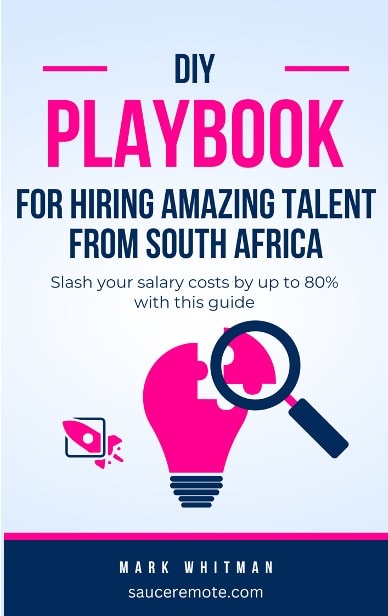Planning to add Singaporean talent to your team? Smart choice!
Singapore is a global financial hub with a highly-skilled, diverse workforce.
With a GDP of over $500 billion and an emphasis on technology, finance, and innovation, it’s an ideal place for expanding businesses.
In fact, Singapore is ranked 2nd in the world for ease of doing business, making it an attractive destination for companies looking to expand quickly and efficiently.
But—here’s the catch—navigating Singapore’s labour laws and cultural nuances isn’t a walk in the park.
That’s where an Employer of Record (EOR) in Singapore comes in handy.
EOR services simplify hiring, ensure compliance with local regulations, and ease the administrative burden.
Stick with me as I explain how partnering with an EOR in Singapore can unlock seamless growth for your business.
Ready? Let’s dive in.

Discover how to slash your salary costs by 80%
Get our exact process for hiring amazing overseas talent from South Africa. Includes copy-and-paste templates and a detailed salary guide.
What Is an Employer of Record in Singapore?
An Employer of Record in Singapore is a third-party organisation that takes on all legal responsibilities of employment for your workforce.
This includes handling payroll, managing taxation, drafting employment contracts, and ensuring compliance with local labour regulations.
They handle local HR, payroll, and compliance tasks so that you can focus on leading your team and hitting your goals.
In simple terms, the EOR becomes the official employer of your team in Singapore, managing all the nitty-gritty while you stay in charge of day-to-day operations.
My pro tip: Check out my guide What Does EOR Stand For to learn more about EORs.
Why Do Businesses Choose an EOR in Singapore Instead of Hiring Directly?
Here are the big reasons why:
- Quick Market Entry: Skip the hassle of establishing a legal entity. With an EOR, you can typically start operations in as little as 2-4 weeks, compared to the 3-6 months it might take to set up a local entity.
- Compliance Support: Use local experts to navigate complex regulations.
- Lower Costs: Save on expenses for setting up and maintaining a local office.
An EOR can connect you with Singapore’s talent pool without the red tape.
But what makes Singapore’s labour market so appealing, and how can an EOR help you take advantage of it?
Let’s break it down.
Hire remote talent from South Africa & slash salary costs by 80%
Salaries start from £8,000 per year!
Understanding the Singaporean Employment Landscape
When I first explored hiring in Singapore, I realised that their labour laws and work culture were quite different from my usual experiences.
Singapore is known for being business-friendly, but that doesn’t mean it’s without its complexities.
Here’s what you need to know:
Standard Working Hours and Overtime
In Singapore, a typical workweek is 44 hours, which generally includes 8-9 hour workdays, depending on the company.
Many companies are also adopting flexible work arrangements, including work-from-home policies, to accommodate modern business needs and improve work-life balance.
Work beyond 44 hours is considered overtime and is paid at a rate of at least 1.5 times the employee’s basic pay.
Non-compliance can lead to significant penalties, which no one wants to deal with.
Compensation and Currency
The currency used is the Singapore Dollar (SGD).
In 2024, Singapore has no legislated national minimum wage, but the market standards are competitive, especially for skilled roles.
For instance, the average salary for skilled professionals ranges from SGD 4,500 to SGD 8,000 per month, depending on the industry and experience level.
Employers are also encouraged to provide a “13th-month” bonus as an additional annual wage supplement (AWS), typically given at the end of the year.
On top of that, many companies provide benefits like private health insurance to keep talent satisfied and reduce turnover.
Hire remote talent from South Africa & slash salary costs by 80%
Salaries start from £8,000 per year!
Public Holidays and Vacation Leave
Singapore observes several public holidays each year, including:
- New Year’s Day (January 1)
- Chinese New Year (usually two days, in January or February)
- Good Friday (March or April)
- National Day (August 9)
- Christmas Day (December 25)
Employees in Singapore are entitled to at least 7 days of paid annual leave after their first year of service, increasing with tenure.
Typically, companies offer around 14 to 21 days, depending on seniority and role. There’s also a statutory obligation to offer at least 11 paid public holidays.
Now, let’s talk about taxes and social contributions.
Tax Responsibilities and Social Contributions
To stay compliant in Singapore, it’s essential to understand the tax system:
Income Tax
Employees must pay income tax levied at progressive rates ranging from 0% to 22%, depending on income level.
Singapore's tax rates are relatively moderate compared to those of other countries in the region, such as Malaysia and Thailand, making it an attractive destination for professionals.
Employers don’t have to withhold tax from employee wages, but it's smart to help your team understand their obligations.
Central Provident Fund (CPF) Contributions
One major requirement for employers is contributing to the Central Provident Fund (CPF), which is the national savings scheme for citizens and permanent residents.
The CPF contribution rate varies depending on the employee’s age, but generally, employers contribute around 17% of wages to cover retirement, healthcare, and housing needs.
However, foreign employees are exempt from CPF contributions, a unique aspect of Singapore’s labour laws.
Hire remote talent from South Africa & slash salary costs by 80%
Salaries start from £8,000 per year!
Leave Policies and Parental Benefits
Here’s what you need to know about employee entitlements in Singapore:
Sick Leave
Employees are entitled to 14 days of paid outpatient sick leave and up to 60 days of hospitalisation leave, provided they have worked for at least three months.
Maternity Leave
Female employees who have worked for the company for at least three months are entitled to 16 weeks of paid maternity leave.
Depending on eligibility, the government can fully or partially cover the payment.
Paternity Leave
Male employees are entitled to 2 weeks of paid paternity leave, which the government also covers, as part of efforts to support family-friendly work environments.
Probation Period and Termination
Here’s what you should know when hiring in Singapore:
Probation Period
Probation periods in Singapore are typically 3 to 6 months.
During this time, either party can terminate employment with relatively short notice, usually 1 to 2 weeks, making it a flexible arrangement for employers and employees.
Notice and Termination
The notice period depends on the employment contract but is often between one week and one month.
Employers must also comply with the Employment Act regarding fair dismissal practices.
Hire remote talent from South Africa & slash salary costs by 80%
Salaries start from £8,000 per year!
Choosing the Right EOR in Singapore
Picking the right Employer of Record in Singapore is key to your hiring success. Here’s what to look for:
- Expertise in Local Labour Law: Make sure they have a thorough understanding of the Employment Act and are able to draft compliant employment contracts.
- Service Scope: Ensure they offer end-to-end services—everything from payroll and HR support to compliance and benefits.
- Transparent Pricing: Always ask for a clear fee structure to avoid surprises.
- Proven Track Record: Check reviews and testimonials to verify their experience in Singapore.
- Local Knowledge with Global Reach: The best EORs have a strong local team backed by global resources.
But what if you aren’t sold on Singapore? Well, I may have a solution.
Consider Other Labour Markets
While Singapore offers great opportunities, you might also want to consider other markets like South Africa, Japan, or the Philippines.
South Africa offers a well-educated, English-speaking workforce, which can be an advantage if communication is a priority for your company.
Japan is known for its advanced technology sector and highly disciplined workforce, making it ideal for tech and manufacturing companies.
Conversely, the Philippines has a large, English-speaking talent pool and is well-known for its strength in customer service and outsourcing.
Each labour market has its advantages.
Whatever market you choose, there’s an EOR out there to help you make it happen.
Hire remote talent from South Africa & slash salary costs by 80%
Salaries start from £8,000 per year!
My Final Thoughts
And there you have it: Hiring in Singapore doesn’t have to be complicated.
With the right Employer of Record in Singapore, you can easily tap into the city-state’s top talent while complying with local regulations.
Let your EOR handle the complexities so you can focus on what matters most: growing your business.
